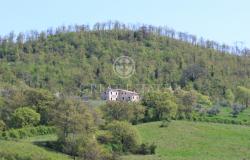 Italy's embattled Toscano cigar, already hit by anti-smoking campaigns and rival foreign brands, could soon vanish from shelves entirely, as farmers drop tobacco crops, a new report says.
Italy's embattled Toscano cigar, already hit by anti-smoking campaigns and rival foreign brands, could soon vanish from shelves entirely, as farmers drop tobacco crops, a new report says.
The study, by economic research institute Nomisma, claims that the European Union's decision two years ago to slash subsidies to tobacco growers could sound the death knell for the traditional Tuscan classic.
In 2006, the first year the EU's new policy was implemented, production of the Kentucky variety used in Toscano cigars dropped by 18%, Nomisma found.
The quantity of leaves fell from 4,194 tonnes in 2005, to just 3,452 in 2006, in keeping with an 18% drop in all tobacco production in Italy last year.
"By 2010, this could have the consequence of making the production of Toscano cigars no longer economically attractive," the report notes.
"Given the production costs and the important contribution made by EU subsidies, there is the risk in Italy that all tobacco production will be abandoned by 2010, including that of Kentucky tobacco".
Kentucky tobacco is mainly produced in Florence near a cluster of local factories that manufacture the Toscano cigar, popular with a long line of Italians, from Giuseppe Verdi, to Giorgio De Chirico, to Federico Fellini.
Nowadays its fans include hard left Communist leader Fausto Bertinotti, former Italy coach Marcello Lippi, former Fiat chairman Cesare Romiti and a host of unionists and politicians.
The Toscano's distinctive flavour is a result of the month-long fermentation that the tobacco undergoes before it is made into cigars.
The process was invented by accident in Florence in the summer of 1815. A sudden downpour soaked a load of tobacco left in the courtyard of a factory owned by Grand Duke Ferdinand. The sun came out and, instead of simply drying, the tobacco began to ferment.
Uncertain of what to do, the factory manager left it there. A month later he had the ruined tobacco made into cheap cigars to sell to the poor factory workers on the other side of the Arno. The cigars proved so popular that in the end the Grand Duke decided to produce them regularly.
Part of the continuing appeal of the Toscano is that some brands are still made by hand, using the same methods as a century and a half ago.
"The disappearance of the crop, would not just mean the loss of an agricultural product," the report concluded.
"It would also mean the loss of a vast heritage of knowledge and skills developed in the course of production for more than a century".













